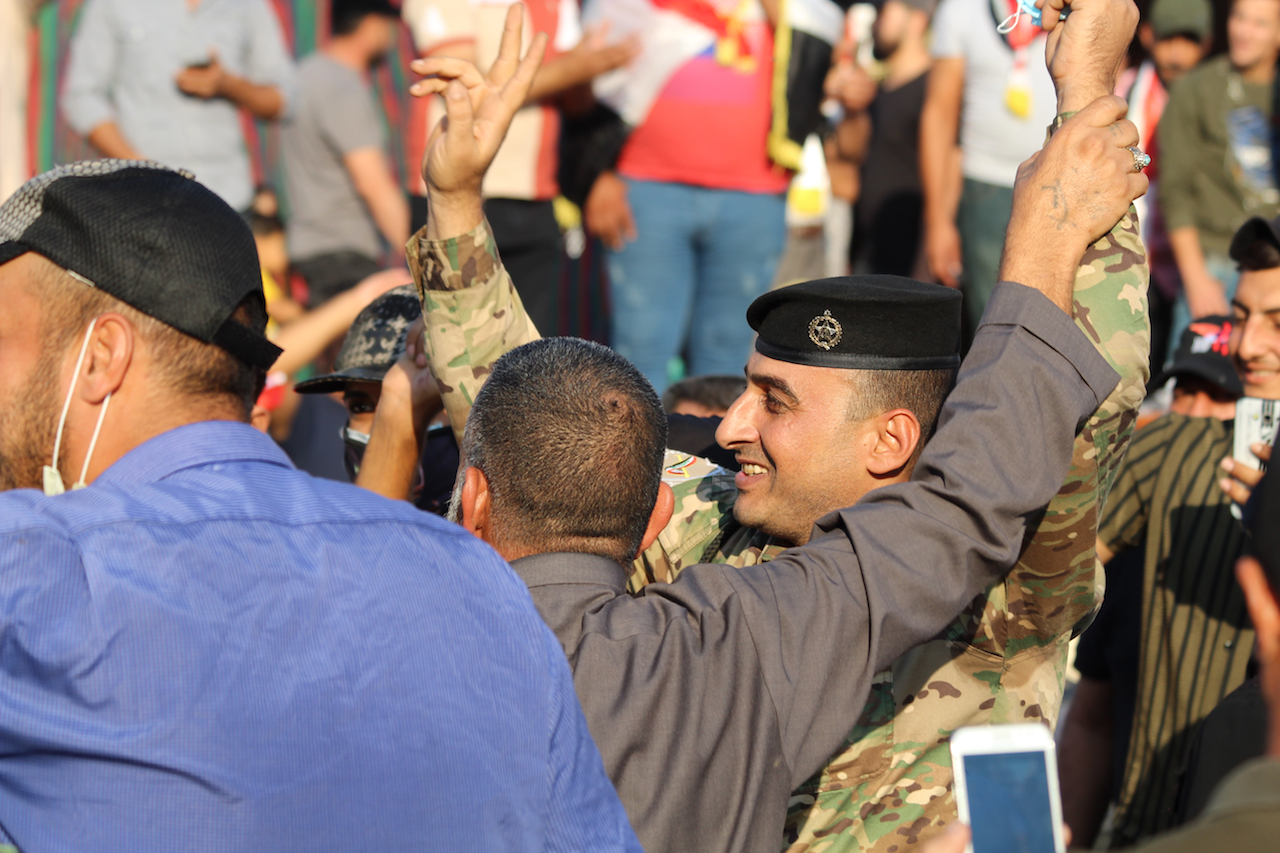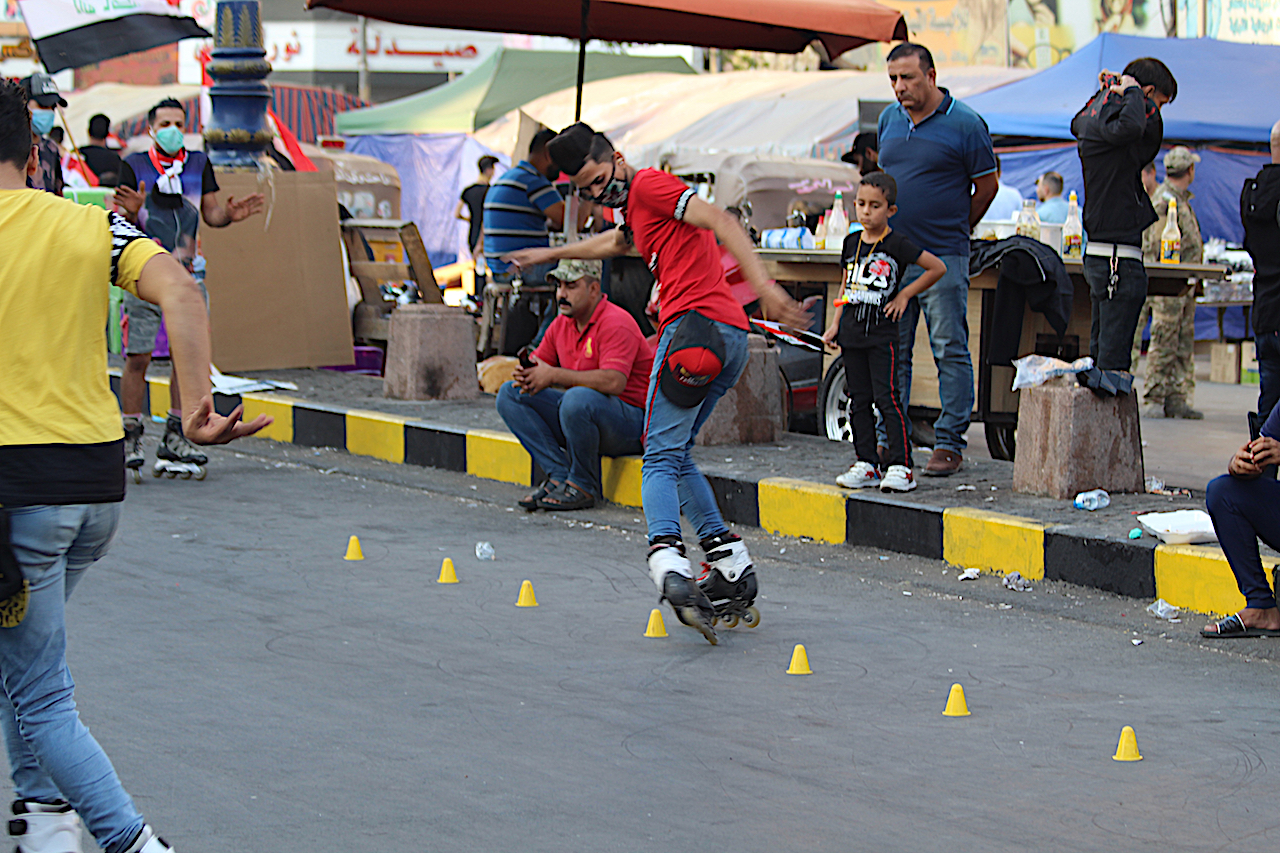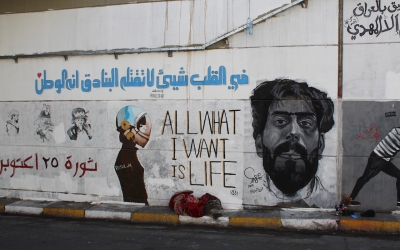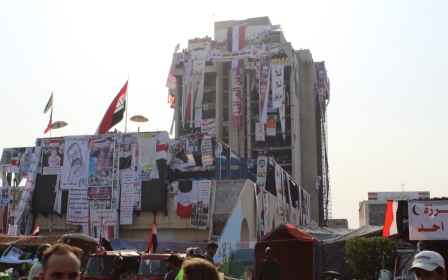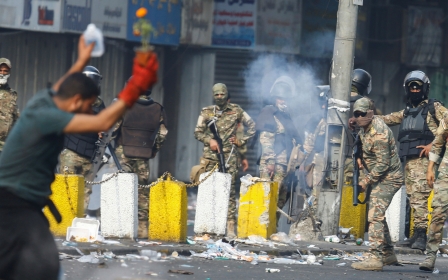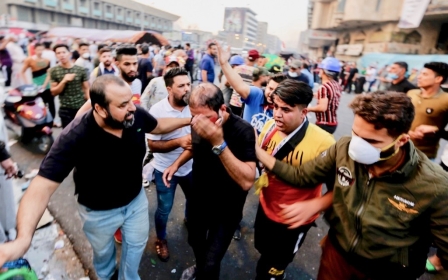Iraq cleric Sistani condemns government as protesters celebrate beating Iran
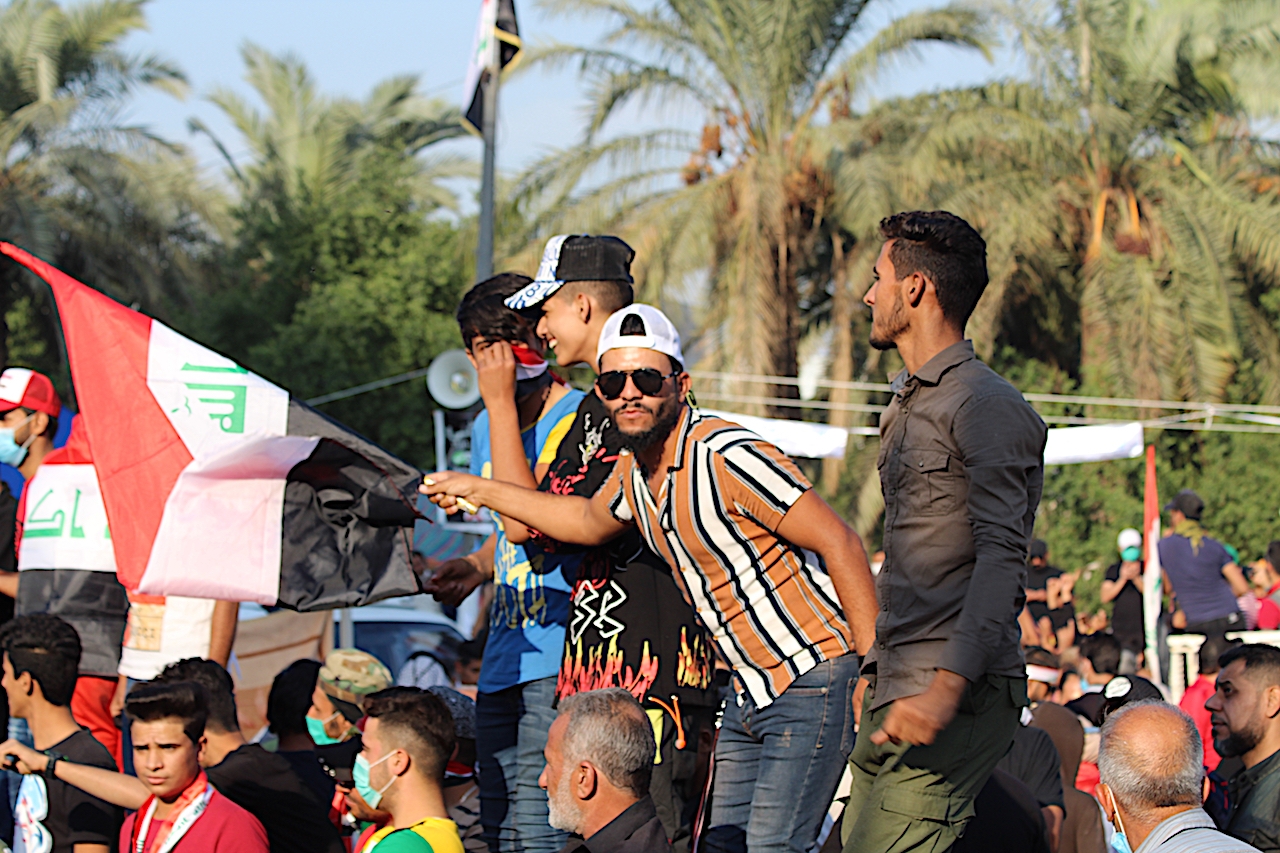
Iraq's top Shia cleric has issued his strongest condemnation of the government yet, as protesters in Baghdad continue to rail against politicians, Iran and the UN.
Ali Sistani said Iraq would never be the same as before the protests, which have so far seen at least 330 people killed and thousands more wounded, as thousands take to the streets to denounce corruption, unemployment and a lack of services since 1 October.
"If those in power think that they can evade the benefits of real reform by stalling and procrastination, they are delusional," said a representative of Sistani, delivering the sermon in Karbala on his behalf, as the cleric never appears in public.
"What comes after these protests will not be the same as before, and they should be aware of that."
Sistani wields enormous influence in Iraq, but the government has so far resisted calls to resign.
New MEE newsletter: Jerusalem Dispatch
Sign up to get the latest insights and analysis on Israel-Palestine, alongside Turkey Unpacked and other MEE newsletters
On Friday, Sistani urged lawmakers to "work quickly to pass a fair electoral law that would restore people's faith in the electoral process".
"Passing a law that does not provide this opportunity to voters would not be acceptable or useful."
His call coincided with Iraq's national football team beating Iran 2-1 in a FIFA World Cup qualifying match, with Baghdad's Tahrir Square exploding in celebrations on Thursday evening.
People danced on the streets until the early hours, with much of the celebration merging into the protest camp in Tahrir Square.
Riding on top of vans and cars, many football fans chanted anti-Iran slogans, including some attacking Qassem Suleimani, the head of Iran's elite Al-Quds Force.
Iran and Suleimani have been a repeated target of protesters, who believe they exert far too much influence over Iraq.
'Those sons of prostitutes who are hitting the protesters - their punishment will come soon'
- Abdul Hadi al-Qureishi, protest supporter
By Friday, the crowds had dissipated somewhat, but there were still thousands of people milling about the makeshift array of tents, speakers and stalls that make up the heart of Iraq's uprising.
Supporters of politician and cleric Muqtada al-Sadr, who has thrown his weight behind the protests, also gathered in the square in a sign of support.
His supporters blasted out music from speakers on the back of a truck and held up portraits of Sadr, as people danced under the hot sun.
Clashes took place in the early afternoon, with tear gas being fired near Khelani Square, north of Tahrir Square. Wind carried the gas across Tahrir Square, burning the eyes and nostrils of people in the crowd.
Security forces have attempted to hem in protesters to Tahrir Square and prevent them from crossing the bridges which lead over the Tigris River near the fortified Green Zone, where the Iraqi parliament and other important buildings stand.
A number of protesters reportedly pulled concrete blocks across the road between Khelani and Tahrir.
'Worse than Saddam'
One older protester, who said his name was Abdul Hadi al-Qureishi, said he had just come from Khelani Square.
"Those sons of prostitutes who are hitting the protesters - their punishment will come soon," he told Middle East Eye.
He said Iraq's politicians were "worse than Saddam", referring to Iraq's former longterm ruler who was overthrown by the US-led coalition in 2003.
"I gave my dearest thing to my country," he said, referring to his missing eye, which he said he lost in 1987 during the Iran-Iraq war after being hit by shrapnel.
"All the governments prevent the people from making a decent living, despite the fact that we are an oil country, the richest country in the world."
Another veteran of conflict - a former member of the Hashd al-Shaabi paramilitary units camped outside the now iconic Turkish Restaurant building - told Middle East Eye he wanted to see all the politicians who brought "only destruction" removed from office.
"I joined the Hashd after Sistani's fatwa," said Zain, referring to an edict by Sistani in 2014 calling on Iraqis to fight the Islamic State (IS) group.
"I went to fight to defend my religion, to defend my country," he explained, adding that he was injured several times after being stationed in Samarra.
He said he joined the protest camp on 25 October.
"We don't want the parliament, we don't want these politicians - we care about [our] country and our people, it's our cause," he said.
"In the Hashd I defended my country - here I defend my country."
On Monday, the United Nations Secretary-General's Special Representative for Iraq Jeanine Hennis-Plasschaert met with Sistani, who back her phased roadmap for tackling the crisis.
She said the cleric had expressed to her that Iraq’s political forces were “not serious enough” to carry out the reforms called for by the UN, including urgent changes to the electoral system within two weeks, prosecution of those responsible for violence, prosecution of corrupt officials, and the passing of anti-corruption laws.
Plasschaert's plan calls for electoral reforms within two weeks followed by constitutional amendments and infrastructure legislation within three months.
But much of the anger on the streets of Baghdad has been aimed at Plasschaert and the UN, with protesters accusing them of equivocating between the government's actions and protesters' action, with the UN official criticising the latter for inflicting economic damage on the country.
Sistani meets Suleimani
A source with close ties to Sistani told AFP that Iranian delegates from Tehran had attempted to give the cleric a letter asking him to back the government and tell protesters to leave the streets.
Sistani "refused to answer the letter or even receive" the delegates, but he did meet with Suleimani, the source said.
"Qassem Suleimani heard some tough words from the marjaiyah about the Iranian role in the Iraqi crisis," said the source, using an honorific for Sistani.
One protester told MEE that he wanted the US to intervene to stop Iran.
"Iran have totally destroyed this land, since 2003 Iran has destroyed everything" said Taha. "Iran took our money, it made all of us young people here suffer."
"We need America to stand to stop Iran - we and America have the same target, against Iran. I know Donald Trump wants to stop this Iranian Revolution in Iraq. We've had enough of this."
Middle East Eye delivers independent and unrivalled coverage and analysis of the Middle East, North Africa and beyond. To learn more about republishing this content and the associated fees, please fill out this form. More about MEE can be found here.


